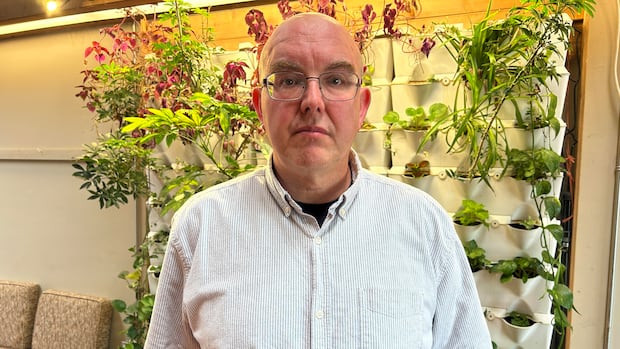'It's a pretty scary time': Oyster industry on edge after dermo found in Egmont Bay
Areas closing down will make fishers have to change locations, says P.E.I. Shellfish Association president

The president of the P.E.I. Shellfish Association says the oyster industry is rightfully concerned about the first case of dermo disease in P.E.I.
But Bob MacLeod said there is no reason for panic.
"It's a pretty scary time for our industry right now," MacLeod said Saturday.
The Canadian Food Inspection Agency announced on Friday that lab tests confirmed the presence of dermo — a highly damaging mollusc disease — in oysters from P.E.I.'s Egmont Bay.
As a result, the CFIA could take control of how oysters are handled and shipped in that area to help limit the spread of the disease.
MacLeod said that areas closing down will make fishers have to move to other rivers, which can cost them more money.
"It affects every other fisherman on the Island because everyone's got to make a living, so everyone's gotta move around," he said.
"It either affects that you gotta share … your river or it affects your cost because you have to travel further."
There were approximately 600-700 licensed oyster fishers on P.E.I. as of October 2024, and many more wild oyster fishers, including MacLeod.
"Even if it's a river that I don't fish in, somebody fishes in it."
Moving forward
The discovery of dermo in Island oysters comes one year after MSX, short for multinucleate sphere unknown, was discovered in Bedeque Bay. More cases were confirmed elsewhere in the province in the months that followed.
"It's really challenging, hard on the head, very stressful and a lot of people's struggling over this," said MacLeod.
He says the association's main objective is to enhance the industry, but that's difficult because of how limited they are in moving oysters from one area to another.

He hopes the government will step up to support and compensate Island fishers.
"Everyone's self-employed in this, and it's not the fault of the fishermen that these diseases [are] here," he said.
With the right support, and some time, he thinks the industry can get past this hurdle.
"We're talking a few years down the road to bring it back, but we can bring it back cause we have various [areas] not hit yet.
"If everyone cleans their rigging, and watches what they do, and with hatcheries and stuff, we can save our industry."
Government response
Zack Bell, the minister of fisheries for the Island, said there was a $3-million contingency fund recently introduced in the provincial budget aimed at helping the industry with issues like MSX.
"We've been able to kind of get that out the door in bits and pieces," he said. "It's kind of a … fund that's going to try to help fishers directly, but also help the industry and help everyone that's involved through different parts.
"Whether it's research and development, whether it's testing or whether it's just helping the industry understand what's going on."

Bell said one tool that has been useful is the government's MSX information site, and that the government has been in communication with the industry about these issues.
He said compensation is a possibility.
"We have a task force … that meets every week. We listen to what's on the ground, what's happening in the industry and where the supports are needed."
Bell said the oyster industry is important to the Island and that the task force is listening.


